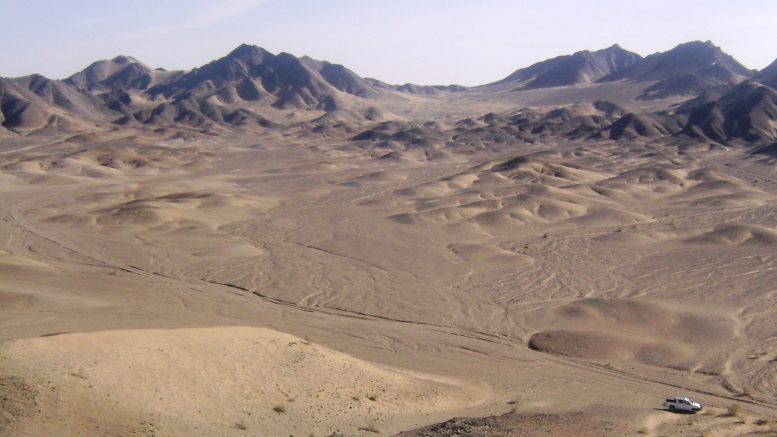A change in the government of Pakistan won’t impact the development of Barrick Gold’s (TSX: ABX; NYSE: GOLD) US$7-billion Reko Diq copper-gold project in Balochistan province, said CEO Mark Bristow on a conference call on Thursday.
In early April, Pakistan’s Prime Minister Imran Khan, with whose government Barrick reached a deal in March to restart the Reko Diq project after a decade, was ousted from office through a parliament vote. Khan was replaced by Shehbaz Sharif, leader of the former opposition party.
“Of course, there are going to be challenges and bumps along the road,” Bristow said. “Despite starting in sort of a conflict situation, the state of Pakistan – and we have been through many governments in this process – has always upheld our agreements and I think that bodes well for a long-term partnership.”
Barrick believes that Reko Diq is one of the world’s largest undeveloped open pit copper-gold porphyry deposits and negotiated with the Pakistan government for two years to restart the project. Some analysts believe that Pakistan’s lack of experience in mining and its political instability make this a risky deal.
Bristow, however, said that he had worked in challenging situations all his life and that he was “very comfortable” with the project. He added that this was the “perfect opportunity for the mining industry to demonstrate what it can bring to an economy” of a region (Balochistan) that has been “neglected” and struggles to get access to potable water.
The project, which was suspended in 2011 due to a dispute over the legality of its licencing process, is expected to start producing copper and gold in 2027.
Barrick envisages an initial capital cost of about US$7 billion — according to the latest conceptual design— about two times the estimate stated in a 2010 feasibility study. It is also expected to have a mine life of 40 years, as opposed to 56.
Barrick foresees the project as a conventional open pit mine to be constructed in two phases and designed to start with a 40-million-tonne-per-year plant, before rising to 80 million tonnes within five years. The first phase is expected to cost about US$4 billion and the second phase, US$3 billion.
Barrick will own 50% of the project and will retain operational control throughout the life of the project. The government of Balochistan will own 25%, while the rest of the ownership will be divided among three Pakistani-state-owned enterprises.
In September 2011, Balochistan’s government said that it considered the mining lease application for the project, which, at the time, Barrick ran along with Chile’s Antofagasta (LSE: ANTO), to be “incomplete and unsatisfactory.”
The mining companies, however, considered the decision unlawful and filed arbitration claims at the World Bank International Centre for Settlement of Investment Disputes (ICSID). In 2019, the ICSID awarded US$5.5 billion in damages to the mining companies with an interest of 1% per annum until the award is paid.
Barrick will waive the penalty if the project restarts.
The Reko Diq deposit is estimated to have a global resource (outlined in 2010 and treated by Barrick as historic) of 5.9 billion tonnes averaging 0.41% copper and 0.22 gram gold per tonne.
In separate interviews with the Globe and Mail and Bloomberg on the same day, Bristow said that Barrick was not interested in buying Kinross Gold (TSX: K; NYSE: KGC), putting an end to speculations from analysts that arose after Kinross sold its assets in Russia and the Chirano mine in Ghana in April.
According to the Globe, Bistrow does not hold Kinross’s core projects in high regard and would not attempt to buy the company just to get a hold of its promising Great Bear project.
“You don’t buy Great Bear by buying a whole load of other cow [dung],” Bristow told the Globe and Mail.
At press time in Toronto, Barrick was trading at $28.91 per share within a 52-week trading range of $22.30 and $33.50. The company has 1.7 billion common shares outstanding for a market cap of $51.4 billion.




Be the first to comment on "Barrick ‘very comfortable’ with Reko Diq project despite Pakistan’s political uncertainty "